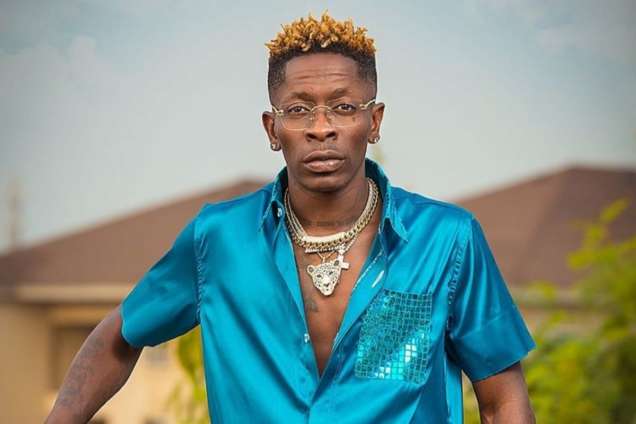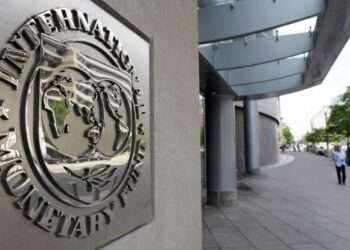In recent years, Ghana has witnessed a significant rise in the creative arts industry, particularly in content creation.
From filmmakers and musicians to digital artists and social media influencers, content creators are shaping the cultural landscape and driving economic growth.
However, despite their contributions, these creators often find themselves neglected by the government, which fails to provide the necessary support and infrastructure to nurture this vibrant sector.
Ghanaian dancehall artist, Shatta Wale, has attacked the government and stakeholders in the creative arts sector, accusing them of lacking a proper understanding and appreciation of the contributions made by content creators.
In a post shared on X (formerly Twitter), the ‘On God’ hitmaker expressed frustration at the disregard content creators often face from the very institutions meant to support them. “I don’t think the creative arts industry in Ghana and even the Ghana government truly understands who content creators are,” he stated.
Shatta Wale argued that content creation is a legitimate profession and not merely a side hustle.
“These individuals have chosen this path, sacrificing their time, investing in equipment, building teams, and creating platforms from scratch. It’s not just a hustle; it’s a serious business.”
Shatta Wale
He explained that content creation is deeply connected to the entertainment industry, noting that the two are interdependent.
According to Shatta Wale, with the right investment and backing, content platforms have the potential to significantly boost Ghana’s entertainment landscape.

Content creators are not merely entertainers; they are innovators, storytellers, and cultural ambassadors. In Ghana, the creative arts industry has the potential to contribute significantly to the economy, enhance national identity, and promote tourism.
The self-styled “Dancehall King” condemned the common belief that YouTubers and digital creators earn money easily without real effort or expertise.
“Please don’t say they’re ‘making money from YouTube’ like it’s some overnight success. The education and discipline required to build on YouTube are far deeper than what you’ve been told. It’s not easy, my guy.”
Shatta Wale
Shatta Wale revealed that he intends to use his platform to uplift content creators by featuring them in interviews and giving them greater visibility. His goal is to shift public perception and advocate for the recognition these individuals rightfully deserve.
According to a report by the World Bank, the creative economy accounts for up to 10% of a nation’s GDP, highlighting the economic opportunities that lie within this sector.
Content creators play a crucial role in this landscape, influencing public opinion, shaping cultural narratives, and providing employment opportunities for many.
Current Challenges Faced by Content Creators

Despite their importance, Ghanaian content creators face numerous challenges that hinder their growth and success.
One of the most pressing issues is the lack of adequate funding and investment. Unlike other sectors, the creative arts industry often struggles to attract financial support, leaving many creators to rely on personal savings or small grants.
Additionally, the absence of a robust intellectual property framework means that creators are frequently at risk of having their work plagiarized or exploited without compensation.
Furthermore, the government’s lack of engagement with the creative community has led to a disconnect between policy-making and the realities faced by creators.
Many content creators report feeling undervalued and overlooked, as their contributions to society are not recognized or celebrated. This neglect not only stifles creativity but also discourages young talent from pursuing careers in the creative arts.
Role of Government to Content Creators

To address these challenges, the Ghanaian government must take a more active role in supporting content creators.
This is achieved through several key initiatives. The establishment of dedicated funding programs and grants for content creators would provide the financial support necessary for projects to come to fruition.
By investing in the creative arts, the government stimulates economic growth and job creation. The government should prioritize the development of a comprehensive intellectual property framework that protects the rights of content creators.
This would not only encourage innovation but also ensure that creators receive fair compensation for their work.
By fostering an environment where creators feel secure in their intellectual property rights, the government promotes a thriving creative economy.
The government should engage with the creative community to better understand their needs and challenges. Regular consultations and collaborations with content creators lead to policies that are more aligned with the realities of the industry.
By valuing the input of creators, the government creates a supportive ecosystem that nurtures talent and drives growth.
The Ghanaian creative arts industry is a treasure trove of potential, yet it remains largely untapped due to the neglect of content creators by the government.
By recognizing the importance of these individuals and implementing supportive policies, the government fosters an environment that encourages creativity, innovation, and economic growth.
It is time for the Ghanaian government to listen to the voices of content creators, invest in their future, and unlock the full potential of the creative arts industry for the benefit of the nation as a whole. The future of Ghana’s creative landscape depends on it.
READ ALSO: Mahama’s Code Of Conduct Mirrors “SERVE”



















